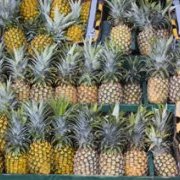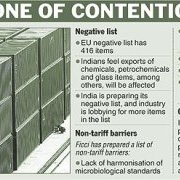19-Mar-2008
AllAfrica.com
Nigerian cocoa producers have said that the Economic Partnership Agreement will underdevelop Nigeria’s economy because the EU standard makes it necessary for exporters to add value to cocoa, something Nigerian cocoa producers cannot comply with.
19-Mar-2008
Costa Rica Pages
Representatives from Central America and the European Union met yesterday, March 17th, to negotiate new trade policy. One of the key elements being proposed by the Central American committee is the lowering of tariffs imposed on certain agricultural products to allow for more competitive trade.
15-Mar-2008
Jamaica Gleaner
So concerned is Brazil about the Caribbean EPA that it sent, on February 5, a communication to the World Trade Organisation requesting a debate. Its concern is that the arrangement agreed with the European Commission may cause nations like India, China and others to cease to negotiate with nations like the Caribbean.






